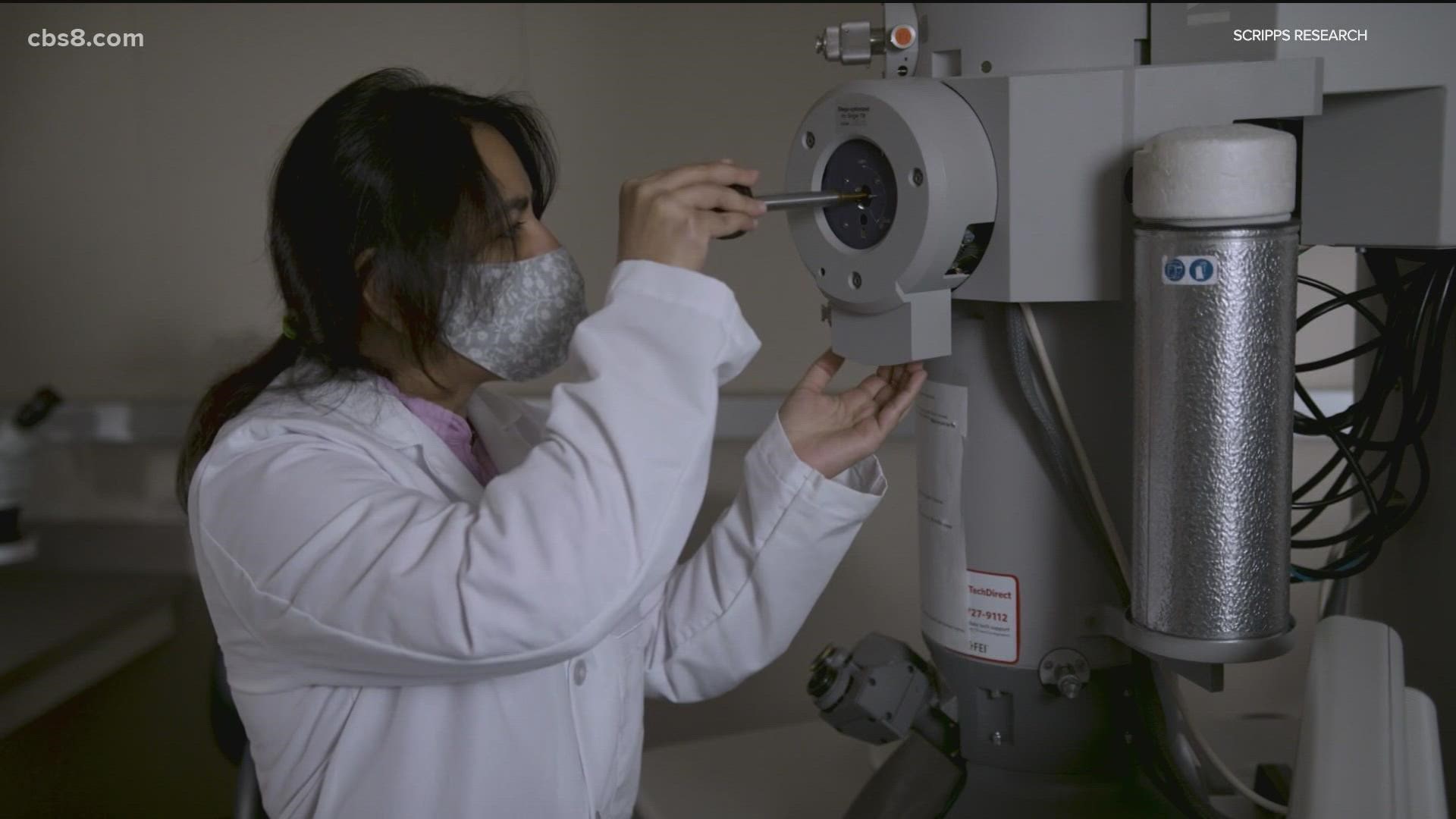SAN DIEGO COUNTY, Calif. — Vaccines have been of high interest in the pandemic, although the science behind them has been researched for decades. Advancements in science continue Friday at Scripps Research in La Jolla.
Scientists at Scripps Research developed a method that allows them to get answers in a vaccine trial much sooner.
“We can get information from a vaccine trial much faster than before, and or isolate the useful therapeutics,” said staff scientist, Charles Bowman, co-author of “From Structure to Sequence: Antibody discovery using cryoEM”
That tool is called cryo-EM technology, an electron microscopy technique that can advance the development of vaccines and monoclonal antibodies.
“Our group uses this in a practical capacity working on HIV vaccines, flu vaccines, and in helping with the COVID pandemic as well,” said Bowman.
He describes the cryo-EM technology as a beam of electrons to illuminate and image targets far below the scale of ordinary light microscopy.
“Which images, very small particles like viruses, and the antigens on their surface. And impairing these two technologies, we're able to more quickly isolate antibodies of use from vaccine trials, or even people who have been sick,” said Bowman.
Scripps Research adds in a study published in Nature Communications in August, for example, the researchers used high-resolution cryo-EM to rapidly and precisely map where antibodies in rhesus macaque monkeys bind, to synthetic versions of the HIV envelope protein, that are being developed for potential HIV vaccines.
This technology is key in finding out how a person with HIV, COVID or an auto-immune disorder responds to a vaccine and future therapies.
“Now instead of taking one person three months, it can take them two weeks," said Bowman. "And so, someone could do a lot more over that three-month period that would have taken before we could already have our answer and maybe, maybe know whether or not to abandon a candidate or move forward,”
This may be a small part of the process of making a vaccine but it's creating a big impact on the future of medicine and your health.
“Hopefully, that over time that contributes to the entire architecture of vaccine development,” said Bowman.
Researchers hope future advancements in cryo-EM technology will allow them to get even more rapid identification of antibodies.
WATCH RELATED: Omicron detection in wastewater is trending down in San Diego County (January 2022)

